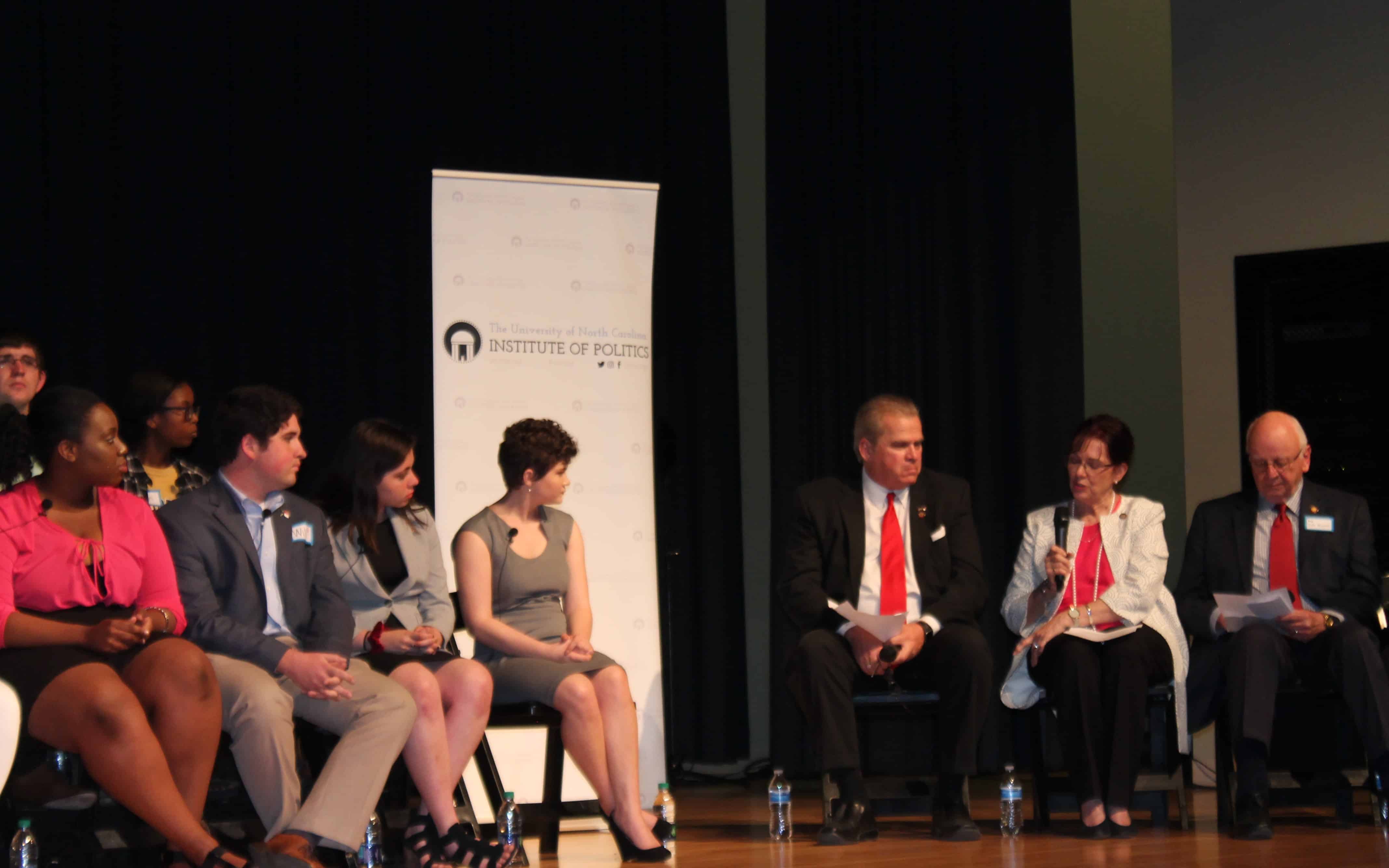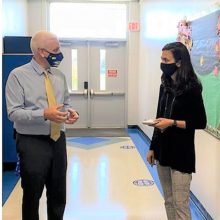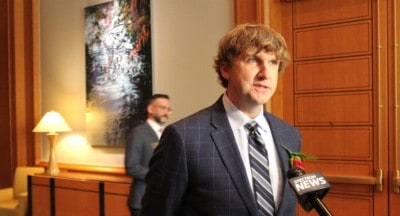On Sunday night, four North Carolina representatives heard viewpoints on how to address gun violence directly from some of their youngest constituents —16 high school and college students from across the political spectrum.
The “reverse town hall” was hosted by the Institute of Politics at UNC-Chapel Hill, and featured questions from Representative John Faircloth, R- Guilford, Representative John Torbett, R-Gaston, Representative Cynthia Ball, D-Wake, and Senator Jay Chaudhuri, D-Wake.
The goal of the reverse town hall was to foster civil discourse by creating a respectful space for young people to share their thoughts with policymakers.
The student panel included representatives from UNC Young Democrats, the Tar Heel Rifle and Pistol Club, the UNC Black Student Movement, College Republicans, Black Congress, Green Hope High School Student Government, Lake Norman Charter School, and numerous other organizations.
Anita Brown-Graham, a professor at the UNC School of Government, moderated the discussion.
“It’s amazing if you reach common ground in these conversations, but ultimately what’s more important is that each of you leave today feeling as those you have heard a perspective and understand a perspective that you didn’t before,” said Brown-Graham.
Torbett, the co-chair of the House Select Committee on School Safety, thanked the students for their input and said many of their recommendations would be incorporated into what the Committee is currently considering.
Torbett opened the discussion by asking students if they believe that current North Carolina laws are stern enough to provide adequate deterrent against the legal use of a firearm.
“The North Carolina statue governing firearms right now is 77 pages long. It took me about three hours to read through it,” said Alan Cat, a representative of the Safe, Fun, Educational Shooters Association. “I think the biggest concern is not whether or not the laws are stiff enough — it’s whether or not they are being enforced.”
Ball asked students for their ideas on how legislation could work to address gun violence. Faircloth asked students about school resource officers (SROs), including questions about their perceived duties and students’ past experiences with SROs.
Students shared a variety of personal experiences with SROs from their middle and high schools. While some told personal anecdotes of fostering strong connections with SROs that ultimately made them feel safer, others voiced concerns that SROs exacerbate the school-to-prison pipeline.
Chaudhuri asked the panel if they believe North Carolina should allow individuals to carry guns on school and college campuses. Answering one-by-one, only two of the 16 panelists said yes.
“Many teachers at my school are just uncomfortable with the idea of firearms in their classrooms. They’re afraid that they won’t be able to successfully keep track of people with firearms or make sure there won’t be an accidental firing,” said Clayton Convington, a senior at Lake Norman Charter School. “When you add firearms to the classroom, it inherently brings risk to the classroom.”
High school students on the panel shared their personal experiences from school walkouts on March 14 and April 20. While some were proud of coordinating and participating in walkouts, that was not the case for Kara Matthews, a junior at Corinth Holders High School.
“We were told that we would be suspended for three days and be stripped of our leadership positions. As a student who wanted to walk out, I felt like I was being pushed down by the administration,” said Matthews. “I knew it wasn’t a Johnston County thing; there were other schools that encouraged people to walk out in Johnston County.”
Other questions from the panel covered topics such as addressing gun violence in both rural and urban settings and increasing video surveillance in schools to mitigate gun violence.
Ball asked the panel where they see common ground on the issue of gun violence and gun control. Students offered ideas such as addressing poverty and wealth inequality, creating a standard set of language and messaging to talk about gun violence issues, passing policies with bipartisan support such as universal background checks, and investing in rural development.
“I really ask that you all make a commitment of continuing this dialogue among yourselves,” said Chaudhuri. “I think by tackling those harder issues, in many ways you will carry the legacy of the students in Parkland who, in just three weeks after that shooting, were able to persuade and convince a Republican governor and Republican General Assembly to pass the most significant gun reform in that states’ history.”
Ball echoed Chaudhuri’s request, urging the students to keep the conversation going and challenging them to set down with someone with opinions on the other side of the political aisle. Faircloth said the General Assembly has to start finding answers to gun violence by working together.



